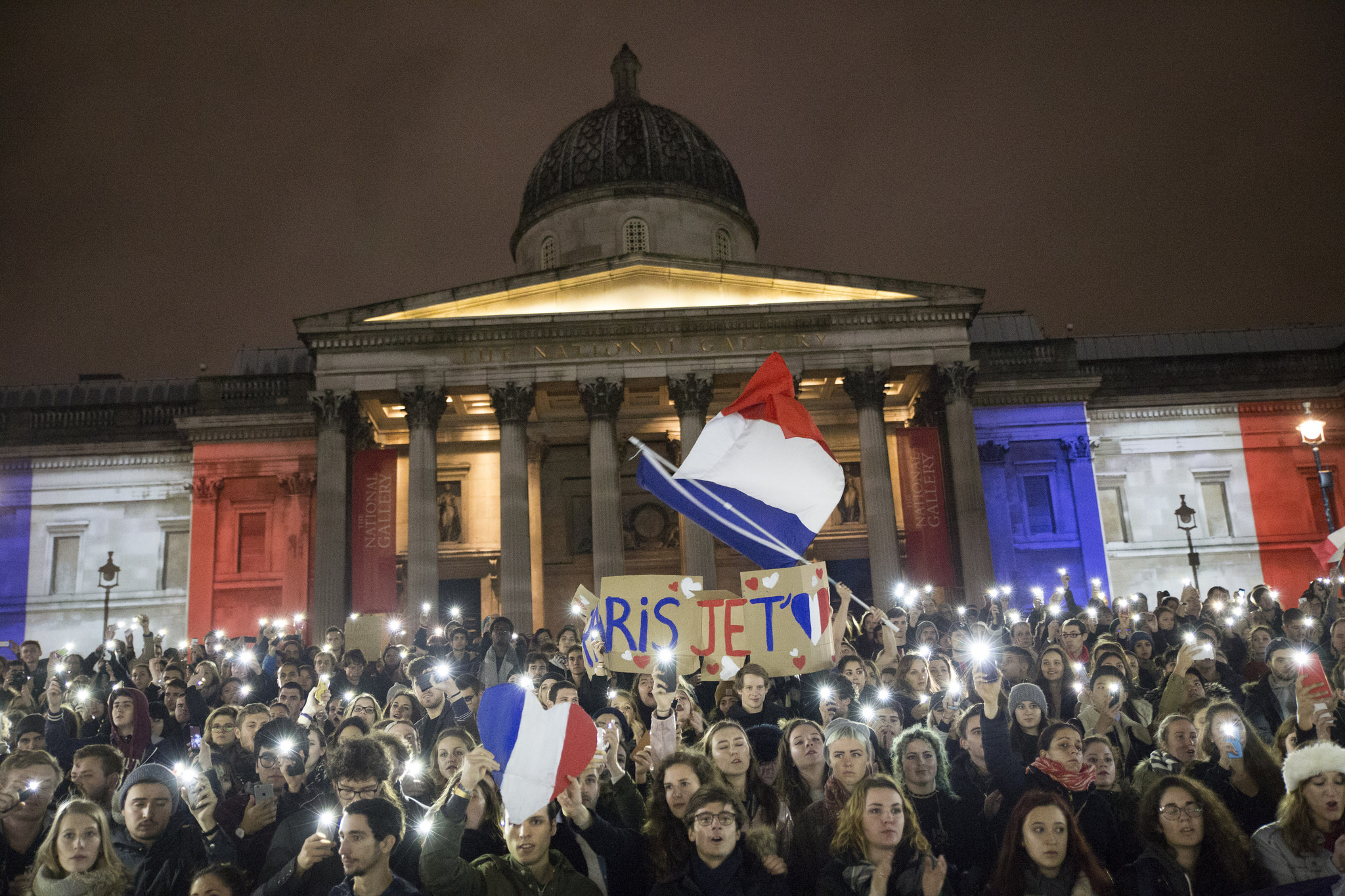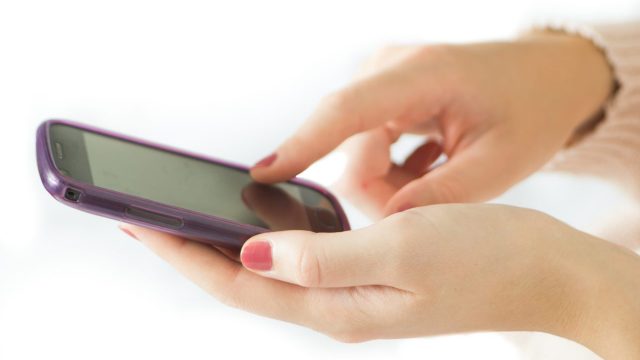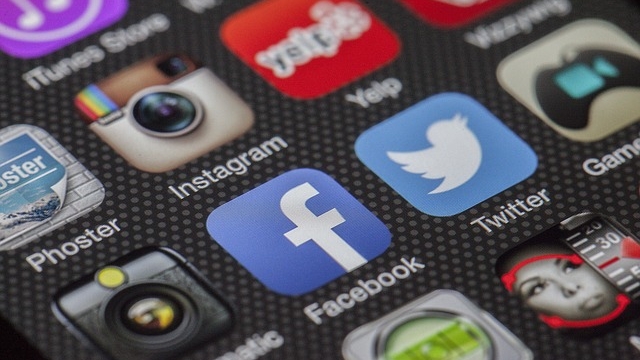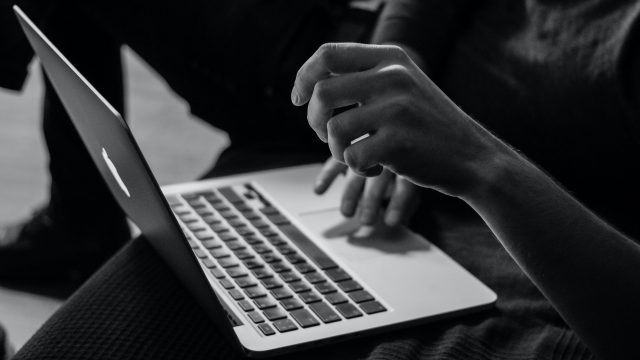
Paris terror attacks: exploring the mainstream and social media reaction
My first knowledge of the Paris terror attacks came through the mainstream media: the live feed from ABC News mobile. Live updating feeds are now common across news websites for major breaking news stories, and so is the immediate replacement of regular television broadcasting with saturation visual coverage of the news story.
For many other people, though, their first knowledge of the terror attacks came through social media. A Bing news search using the keywords “Paris media” finds numerous articles discussing the role of social media after the Paris attacks.
Alex McClintock has penned the opinion piece “Social media after Paris: The good, bad and ugly“. His “bad and ugly” includes anti-immigration conservatives who could barely suppress their joy at an event they saw as confirming their world view, distant Facebook friends and relatives expressing hair-raising remarks, and comments from opportunists such as the American gun lobby. On the “good” side, he discusses the sharing of Jean Jullien’s iconic Paris peace image, French flag overlays on Facebook profiles, and this humanitarian aspect of the response:
Maybe the most notable aspect of the social media response as a whole was the #portouverte hashtag on Twitter, which allowed Parisians from all walks of life to offer safe haven to strangers, even as the bombs were still going off. It was a simple, clever, humanitarian way of making a difference, and showed the citizens of Paris in the best possible light.
Other writers have discussed concerns about the reaction to the Paris attacks, both in social media and generally, compared to other similar tragedies, most notably a bombing in Beirut the day before Paris that killed more than 40 people and injured over 200 others. I’m inclined to share this concern, having only become aware of the Beirut bombings after they were raised on Facebook in response to the Paris attacks coverage.
High-profile Lebanese blogger Elie Fares laments:
When my people died on the streets of Beirut on November 12th, world leaders did not rise in condemnation. There were no statements expressing sympathy with the Lebanese people. There was no global outrage that innocent people whose only fault was being somewhere at the wrong place and time should never have to go that way or that their families should never be broken that way or that someone’s sect or political background should never be a hyphen before feeling horrified at how their corpses burned on cement. Obama did not issue a statement about how their death was a crime against humanity; after all what is humanity but a subjective term delineating the worth of the human being meant by it?
A target for concern has been activation of the Facebook “Safety Check” feature in response to the Paris attacks, but not Beirut. Safety Check allows people near a disaster to tell their friends if they are safe, and to find out if their friends are safe. Facebook’s Vice President of Growth Alex Schultz issued a statement in which he says: “We chose to activate Safety Check in Paris because we observed a lot of activity on Facebook as the events were unfolding”. Facebook CEO Mark Zuckerberg later added his own comments, in which he states:
Until yesterday, our policy was only to activate Safety Check for natural disasters. We just changed this and now plan to activate Safety Check for more human disasters going forward as well.
While McClintock supports raising concerns about the disparate coverage, he warns against this reaction going too far. He agrees with what Jamiles Lartey describes as an attitude of leftist “attention hijacking”, and criticises a New Matilda article that he says embodies that attitude.
McClintock also raises the issue of social media misinformation in his discussion of the “bad and ugly”, mentioning the untrue circulation of information about the Eiffel tower lights being dimmed, people taking to the streets of Paris, and a refugee camp fire.
However, the mainstream media is also guilty of circulating misinformation. A notable example is that of a Canadian Sikh man being Photoshopped into a Paris terrorist, with this image then appearing on the front page of a Spanish newspaper.
Further, while a Bing news search using the keywords “Paris media” found numerous articles discussing the role of social media after the Paris attacks, it located very few questioning the response of the mainstream media. From this, it appears that the mainstream media may not face the same level of scrutiny as social media.
In regard to the good, bad and the ugly of the social media response, McClintock concludes:
It’s tempting to conclude that because on social media we’re forced to confront abhorrent or poorly thought-through views, it has some role in creating those views.
The reality, however, is that now more than ever social media is simply an extension of our “real lives” not some discrete realm where people act differently. There are as many bigots and boors in our pubs and our parliament as there are on our news feeds, but there are also plenty of good citizens and kind-hearted souls.
Paris demonstrated again that extreme circumstances bring out both the best and the worst in people, and that Twitter and Facebook just allow you to see it more clearly.
Image source: Vigilante for #ParisAttacks in London by Christiaan Triebert is licensed by CC BY 2.0.
Also published on Medium.





